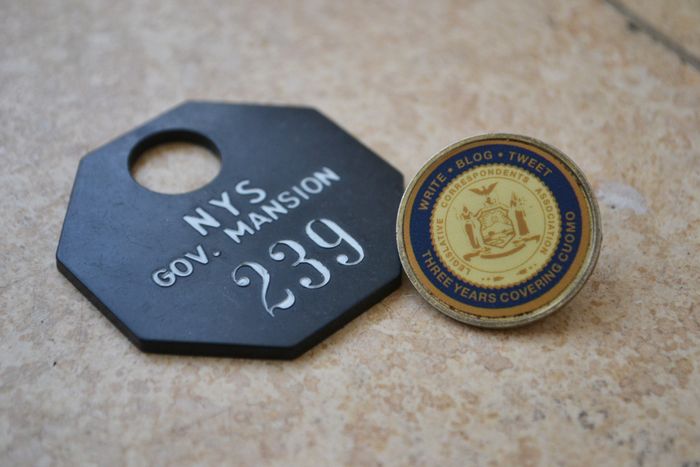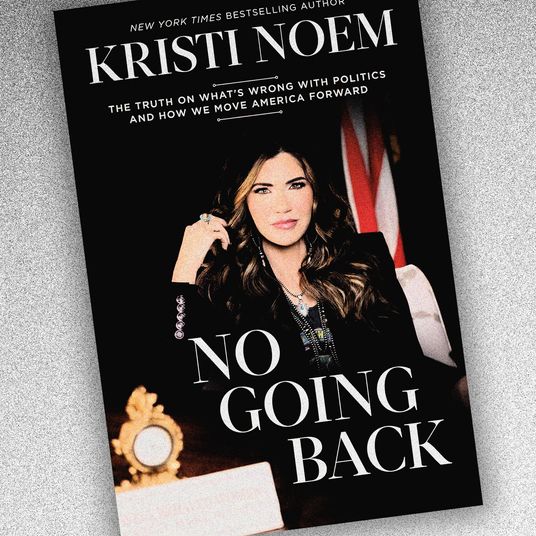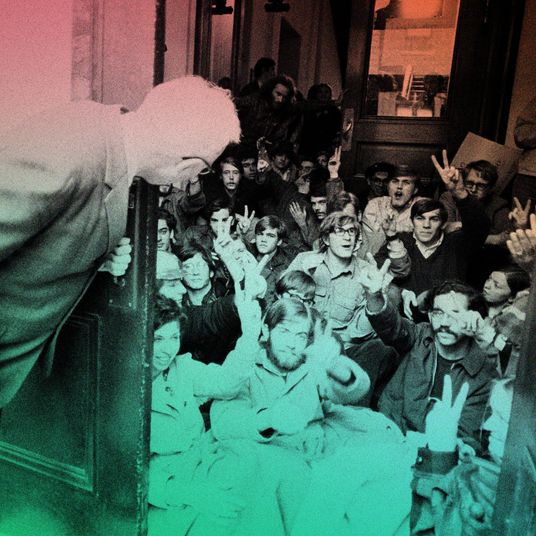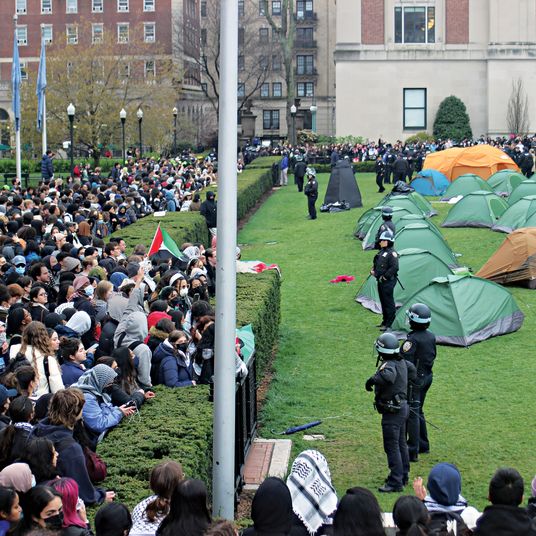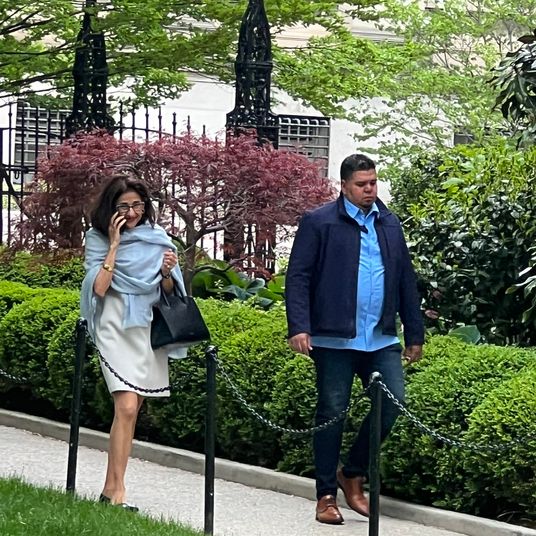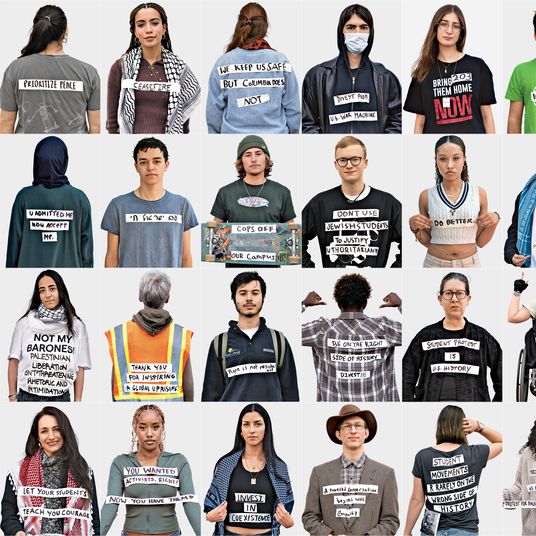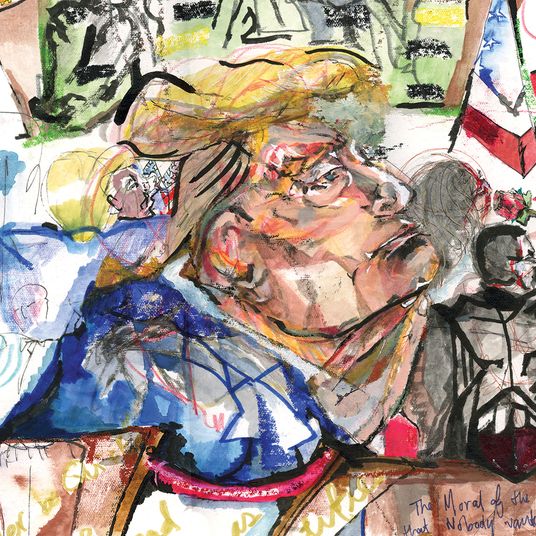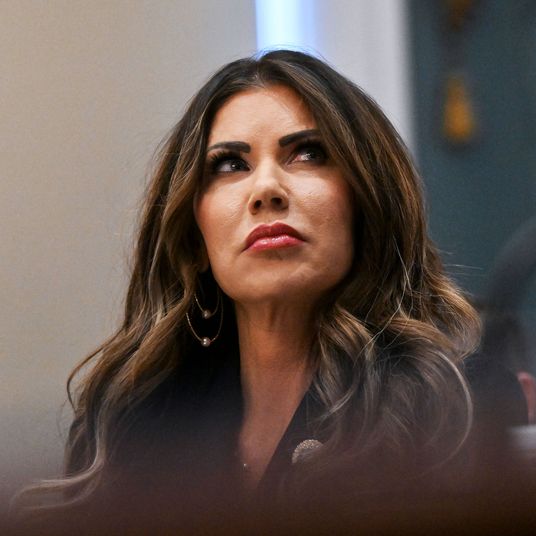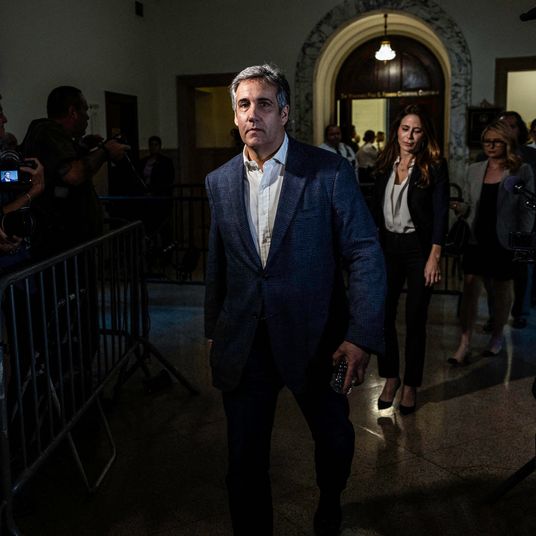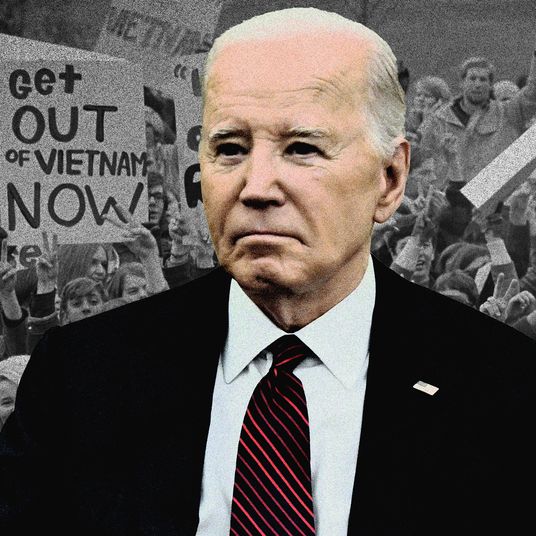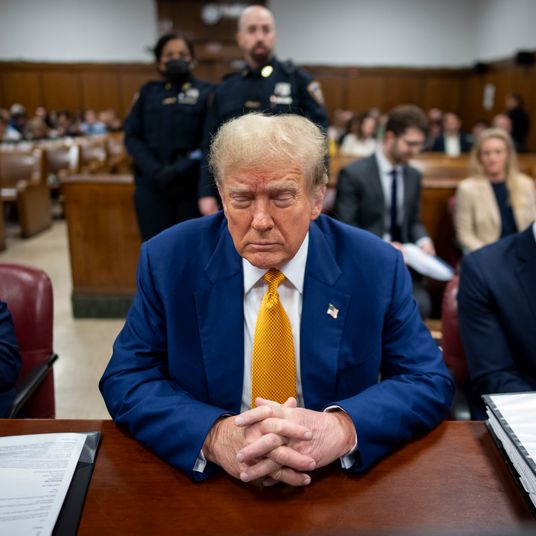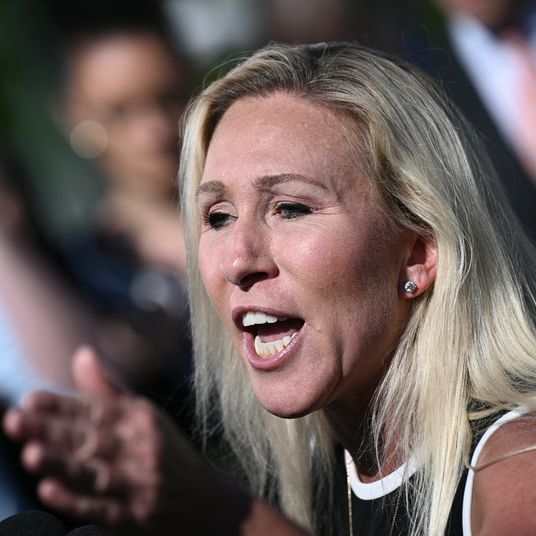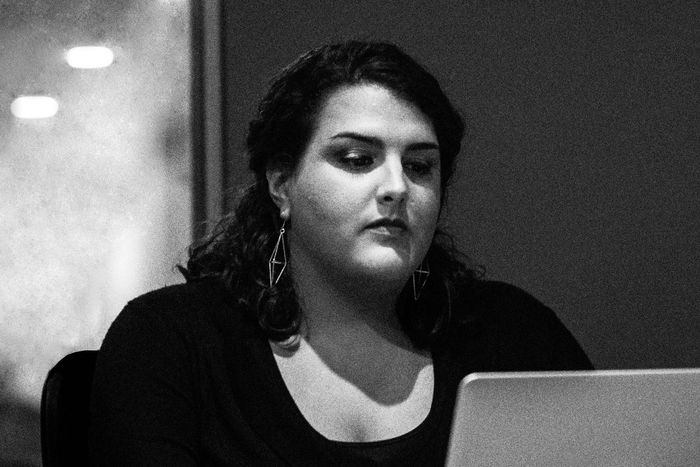
Andrew Cuomo’s hands had been on my body — on my arms, my shoulders, the small of my back, my waist — often enough by late 2014 that I didn’t want to go to the holiday party he was hosting for the Albany press corps at the executive mansion.
I was 25 years old and working as a statehouse reporter for what is now Politico New York. I had been on the Capitol beat for a couple years by then, but I was still among the youngest reporters in the press corps, and one of the few women in the group whose job it was to report on the governor’s every move. Everyone else was going, and some had been covering state government for decades. I thought if I skipped the event, I might miss out on some intangible opportunity to cement myself as a part of that community. I ignored my instincts and went anyway, walking over from the New York State Capitol Building with several colleagues.
Shortly after I arrived, news broke on my beat, and I had to return to the Capitol. I decided to thank the governor for inviting me and, more importantly, to offer my best wishes for his father’s recovery. Former governor Mario Cuomo was dying at the time.
I walked up to the governor, who was in the middle of a conversation with another reporter, and waited for a moment when I could interject. He took my hand, as if to shake it, then refused to let go. He put his other arm around my back, his hand on my waist, and held me firmly in place while indicating to a photographer he wanted us to pose for a picture.
My job was to analyze and scrutinize him. I didn’t want a photo of him with his hands on my body and a smile on my face. But I made the reflexive assessment that most women and marginalized people know instinctively, the calculation about risk and power and self-preservation. I knew it would be far easier to smile for the brief moment it takes to snap a picture than to challenge one of the most powerful men in the country.
But my calculation was a bit off. I was wrong to believe this experience would last for just a moment. Keeping his grip on me as I practically squirmed to get away from him, the governor turned my body to face a different direction for yet another picture. He never let go of my hand.
Then he turned to me with a mischievous smile on his face, in front of all of my colleagues, and said: “I’m sorry. Am I making you uncomfortable? I thought we were going steady.”
I stood there in stunned silence, shocked and humiliated. But, of course, that was the point.
I never thought the governor wanted to have sex with me. It wasn’t about sex. It was about power. He wanted me to know that I was powerless, that I was small and weak, that I did not deserve what relative power I had: a platform to hold him accountable for his words and actions. He wanted me to know that he could take my dignity away at any moment with an inappropriate comment or a hand on my waist. (The Cuomo administration has declined to comment.)
It’s not that Cuomo spares men in his orbit from his trademark bullying and demeaning behavior. But the way he bullies and demeans women is different. He uses touching and sexual innuendo to stoke fear in us. That is the textbook definition of sexual harassment.
For years, I would relive that moment at the holiday party, questioning whether I possess the strength I’d like to think I do, questioning whether I was the journalist or feminist I thought I was. I didn’t admonish the governor for suggesting there was a romantic relationship between us. For attempting to tarnish my professional credibility. For stunning me silent.
I’ll never forget walking back to the Capitol with a few colleagues, processing the moment aloud. One male reporter put it this way: “Women’s equality much?” It was the year Cuomo had created the Women’s Equality Party and sent his lieutenant governor, Kathy Hochul, to stump for him in a bus with a pink stripe down the side. That campaign was the perfect illustration of Cuomo’s views on women: that we are political pawns, objects, a means to an end.
That night was perhaps the most egregious example of when Cuomo sexually harassed me, but it was not the first nor the only time.
Two years earlier, just months into my first job in Albany as a statehouse reporter for the USA Today Network, my colleagues and I had been invited to a different reception at the mansion to bid farewell to an outgoing communications staffer. I arrived late after filing a breaking story. When I got there, I immediately noted that I was the only woman in the room. Cuomo and my male colleagues encircled a cocktail table, the governor captivating them with his account of watching the waters of Superstorm Sandy pour into the World Trade Center memorial site.
The only opening in the circle was right next to the governor, so I hovered outside the perimeter and listened. Without pausing his anecdote, he took my hand, pulled me into his body and put his arm around my shoulder. He left it there, and kept me pinned next to him, for several minutes as he finished telling his story. I stood there, my cheeks hot, giggling nervously as my male colleagues did the same. We all knew it was wrong, but we did nothing. Sexual harassment is so ubiquitous in Albany we often don’t call it what it is.
In the course of my reporting, Cuomo never let me forget I was a woman.
At a press gaggle in October 2012, I held my phone out to record the governor’s answers to my colleagues’ questions. When it was my turn, I asked about a recent report criticizing New York as having some of the highest taxes in the country. Instead of answering, he took my phone out of my hand and playfully mocked me for the fact that the case was purple.
At a 2014 Cabinet meeting in the same Capitol “red room” where Cuomo held his Emmy-winning COVID-19 briefings, I yelled a question alongside my colleagues, hoping to be the last one standing. As others dropped out, only I and an older male reporter pressed on. Ken Lovett, then–Albany bureau chief for the New York Daily News, was one of the longest-serving journalists at the Capitol. Ultimately, Lovett gave up and allowed me to ask my question. In response, Cuomo brought the press conference to a standstill. Looking around at the dozens of powerful people in the room and laughing, the governor asked me to repeat my question, adding: “I just enjoy how you shut up Ken Lovett, to tell you the truth.” Cuomo seemed to think the fact that I had the audacity to speak over a man was hilarious. With him, these exchanges were always meant to be a public humiliation.
Over the last several days, I’ve been fielding calls and texts and direct messages from people I knew in Albany and people I didn’t. Some are reporters asking if I want to speak out about my experiences, to add to the chorus of women calling out the governor for his unforgivable behavior. They knew to reach out because what happened to me wasn’t a secret. It wasn’t in private. Sometimes, it was even recorded or photographed.
I know my name likely will be attached to this scandal for the rest of my career. I wonder if my hard-won relationships with sources could be damaged if all of a sudden they start looking at me like a snitch, someone who reveals events that are meant to be “off the record.” The way Cuomo operates is by daring women to make an impossible choice: endure his abuse silently or speak up and risk your career.
I worry not only about the professional blowback but also the potential personal consequences — for myself and my family. It’s more than a remote possibility that writing this essay will invite retaliation from the Cuomo administration, which is staffed by emotional terrorists who often spend their days trying to intimidate anyone they deem a threat to what they hoped would be the governor’s meteoric rise.
Cuomo’s top staff members often find pleasure, even glee, in torturing reporters on the Capitol beat. For a holiday party one year, the administration made a video roasting us as a gift. The background track: an instrumental version of “Fuck You,” by CeeLo Green.
Another gift, one that I saved, is a framed mock Boy Scouts badge that instead reads “Cuomo Scouts.” At the center is an image of Cuomo smiling above a banner with the words “In Andrew We Trust.” Apparently, he fancies himself God.
My name is also on the badge; the gift was personalized. Embroidered lettering across the top declared me a “survivor” of “Camp Cuomo.”
Unfortunately, though, it wasn’t just the culture of the Cuomo administration I had to survive in New York’s capital. If it wasn’t Cuomo putting his arm around me, it was a drunken state lawmaker propositioning me at a bar or a guard repeatedly denying me access to the Senate chambers or a male colleague in the press corps refusing to accept his own complicity in what was happening. Whether the governor resigns or finishes out his term or is reelected or runs for another office, his eventual departure alone will not end the legacy of sexual harassment in Albany. As a former colleague recently tweeted, it’s “as pervasive as air.”
Journalists are often told not to let ourselves become part of the story. More than five years ago, I left Albany for a new job in Florida, but many of my former colleagues and friends are still there, trying to retain “objectivity,” even after enduring harassment.
I can speak out because I have “survived” Camp Cuomo. The others are still living it.


